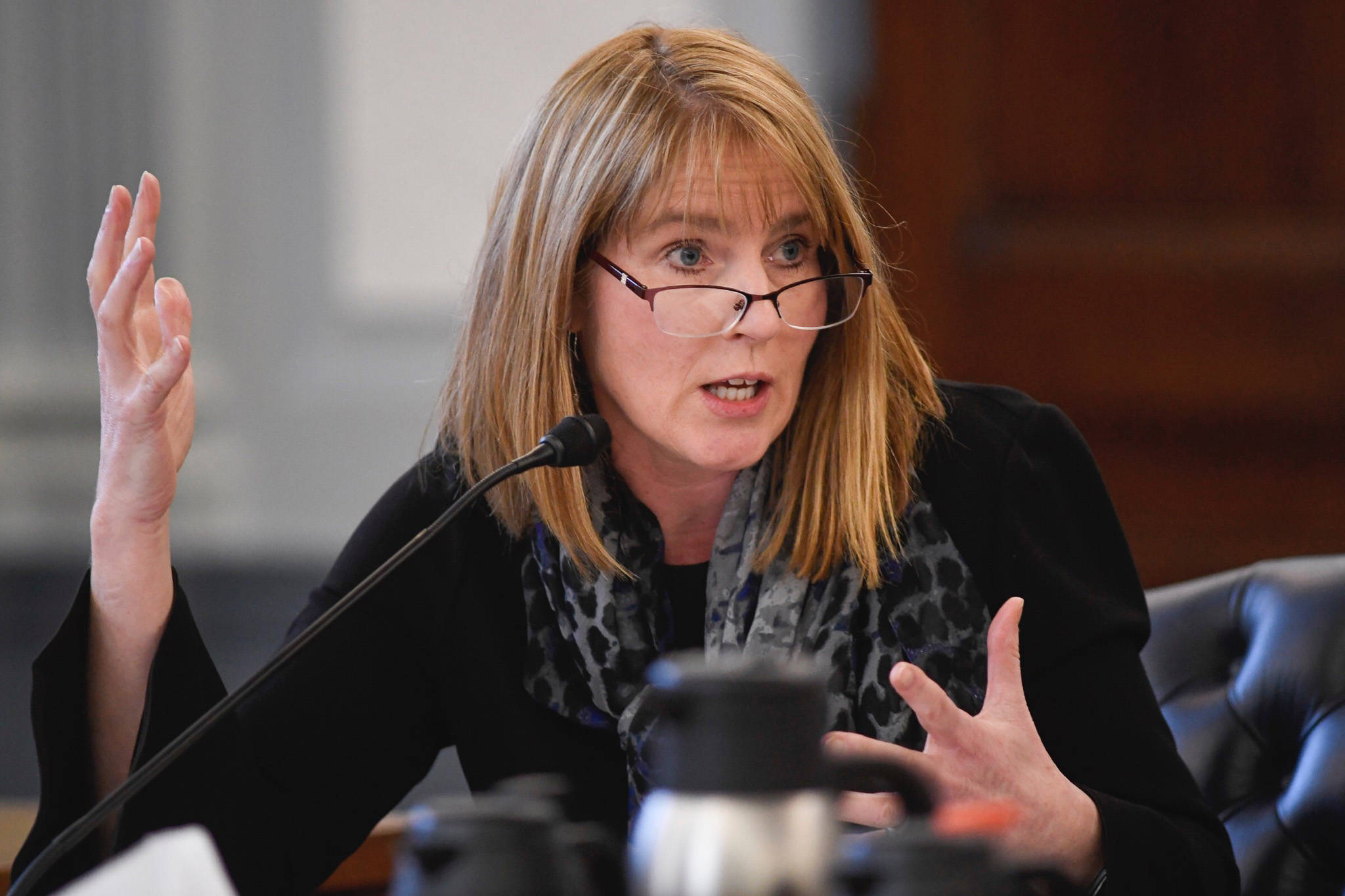5:15 p.m.
There are now 64 Senate Bills uploaded to Akleg.gov. Some of these have been submitted by Gov. Mike Dunleavy as part of his criminal reform package, Senate Bills 32 – 35.
Now Dunleavy has submitted another round of bills that concern the budget. Senate Bills 57 – 59, 61 – 64 are companion bills to the budget. Take SB 57 for example. This would repeal the law that allows a municipalities, such as the North Slope and Fairbanks North Star boroughs to collect a property tax from oil and gas companies. It would allow the state to collect those tax dollars instead.
For Dunleavy’s budget to work as it has been proposed, these companion bills would need to be passed. For example, the proposed budget relies on those property taxes redistributed to the state as outlined in SB 57 as a revenue source.
If SB 57 is not passed, money will need to found elsewhere to produce a budget in which revenues equal expenditures. The fate of the other budget bills would have a similar affect on Dunleavy’s budget.
— Kevin Baird
12 p.m.
The Senate Finance Committee grilled the members of the Office of Management and Budget as they received an overview of the Department of Education budget. Education Commissioner Michael Johnson was present, too.
“I think the conversation that just happened is incredibly important to Alaska,” said Mike Barnhill. He is a policy analyst in the OMB. “There is literally no plan we can put before this committee to which there is some element someone won’t hate.”
The Student Base Allocation, or the money spent per student, would be lowered from about $5,900 per student to $4,800, under the governor’s proposal. The Anchorage School District alone would lose about $85 million under this proposal.
In light of the massive cuts to the Department of Education, Sen. Natasha Von Imhof, R-Anchorage, says Alaskans have an important question to contemplate about cuts to the budget as they receive a full Permanent Fund Dividend.
“This is what it looks like to pay out a full dividend,” Von Imhof said.
The House floor session is about to begin.
— Kevin Baird
11:30 a.m.
The Alaska House did not conduct much business today. The House will reconvene at 10 a.m. Tuesday. House members are caucusing.
— Kevin Baird

